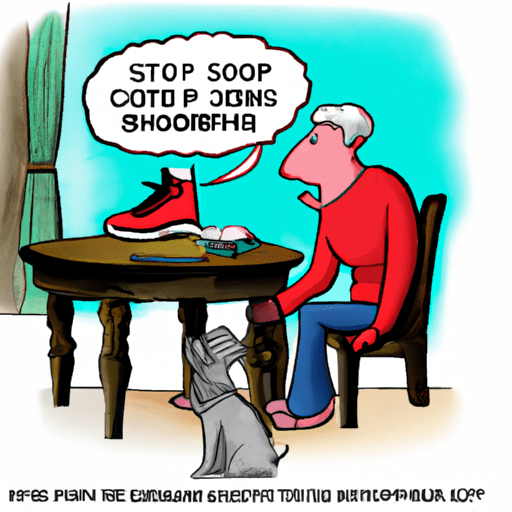“`markdown
How to Stop Dogs from Chewing
Understanding Why Dogs Chew
As a caregiver, you’ve likely asked, “Why does my dog chew everything they see?” It’s crucial to understand that chewing is a natural behavior for dogs. Dogs chew for several reasons:
- Teething: Puppies chew when they’re teething to alleviate the discomfort.
- Boredom: Dogs chew to entertain themselves when they’re bored.
- Anxiety: Chewing can be a form of stress relief for anxious dogs.
Knowing the reason behind your dog’s chewing habit is the first step towards addressing the issue.
How to Discourage Chewing
You can discourage your dog from chewing by following these steps:
- Provide chew toys: Ensure you have plenty of dog-friendly chew toys available.
- Use deterrent sprays: There are sprays available that taste bitter and discourage dogs from chewing on certain objects.
- Praise positive behavior: When you notice your dog playing with their chew toys, reward them with praise and treats.
| Step | Action |
|---|---|
| 1 | Provide chew toys |
| 2 | Use deterrent sprays |
| 3 | Praise positive behavior |
Training Your Dog Not to Chew
Training your dog not to chew takes time and patience but with consistency, your dog will learn what they can and cannot chew. Here are some steps to follow:
- Teach “leave it” command: This command is useful for preventing your dog from chewing on inappropriate items.
- Redirect their attention: If you catch your dog chewing on something they shouldn’t be, redirect their attention to a chew toy.
- Never punish after the fact: Dogs don’t understand being punished for something they did hours or even minutes ago.
When to Seek Professional Help
Sometimes, despite your best efforts, your dog’s chewing behavior may persist. This could be a sign of a more serious issue, such as separation anxiety or a medical problem. If this is the case, it may be best to seek help from a professional dog trainer or a vet.
Keeping a Dog-Friendly Environment
Remember, as a caregiver, it’s also your responsibility to create an environment where your dog can thrive. This means removing potential hazards, ensuring they have plenty of physical and mental stimulation, and providing them with love and care.
FAQ
Q: How long does the teething phase last in puppies?
A: The teething phase in puppies typically lasts until they’re about six months old.
Q: Are there certain items that dogs are more likely to chew?
A: Dogs tend to gravitate towards items that smell like their owners, such as shoes or socks.
Q: What should I do if my dog chews up something valuable?
A: It’s important to remember that dogs don’t understand the value of items. Instead of getting angry, use it as a learning opportunity to train your dog and prevent it from happening again.
Q: Can chewing be a sign of a health problem in dogs?
A: Yes, excessive chewing can be a sign of dental problems or other health issues. If your dog’s chewing habit suddenly increases, it’s a good idea to consult with a vet.
“`



